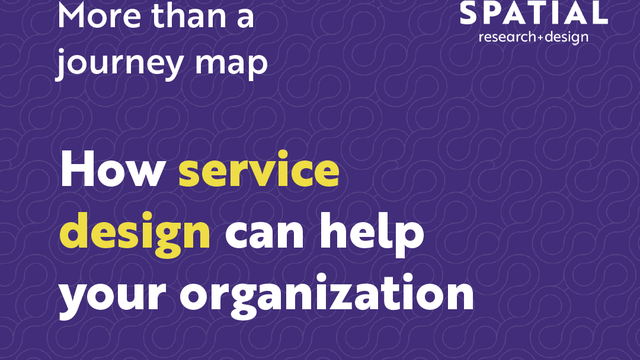Spotlight on a presentation by Hon. Mobina S. B. Jaffer, Senator for British Columbia, Senate of Canada at our Women and Leadership West Conference
Earning Honour and Respect
Members of parliament are often seen as respected and privileged citizens. Whilst this is no doubt true, for many of them that respect and honour was earned many years before they begin their first campaign. This is particularly the case for aspiring female politicians, and especially for immigrants. Hon. Mobina S. B. Jaffer is currently a Senator for British Columbia in the Senate of Canada, but she is both a female and an immigrant from South Asia. She arrived in Canada 50 years ago as a refugee, and immediately moved to Ottawa because she wanted to be a politician. She was already a lawyer, but had no legal experience and certainly no Canadian experience. Nonetheless, she succeeded as both a lawyer in Vancouver and eventually as a politician because of dogged determination, and because of ten rules or goals, that have never changed, from her first day as a lawyer till today.
Ten Rules for Successfully Breaking down Barriers
The following ten rules are based specifically on Senator Jaffer’s experience, but she says they are particularly important if you want to break down barriers. That is a very difficult thing to do, but it is much easier than it was 50 years ago. Moreover, there is a much bigger group of women in the public service these days, verging on 50%, but there is still not the diversity of backgrounds in the parliament or in the public service as there is in general society, so there is still a lot of work to do in order to get the representation. These rules may help:
- Desire – Having desire that borders on determination is the first point, because especially for people new to this country, you need have a little bit of nerve, and in my case it never left me. On top of that, desire is what drives progress and change. We want to see things differently, and for some, that means moving towards positions of leadership in order to get there and make the change.
- Qualifications – However, desire on its own is not enough. It needs to be backed by qualifications, though that too is not always enough. I was a qualified lawyer before I arrived, but without Canadian legal experience, it was hard to find a job. People kept saying there are no lawyers like you in Canada, implying that people from immigrant backgrounds shouldn’t take up this profession. But I re-qualified – which was difficult – and then became the first South Asian practicing woman lawyer in Canada.
- Commitment – One of the reasons she was able to do this is because I didn’t give up, and because I had commitment. In truth, commitment is quite personal, but it also needs to be demonstrated. In that first job as a lawyer, I came in at 6 or 7am, worked on the weekends and was like an old shoe; always there. People saw that commitment and if something needed to be done, I was there to do it.
- Analyze your next step(s) – The one break from work was for a little while every weekend to analyze. I was very methodical, and each week I would decide what little thing I wanted to achieve that week to make some progress towards my goal. That analysis allowed progress to be made.
- Gain experience – At the same time though, experience was also required, and particularly Canadian experience. For a while I worked two jobs as a lawyer, one as a volunteer just to gain that experience. Getting Canadian experience became my mantra.
- Mentor(s) – Throughout the process and even now, the next step was to mentors. From the outset, I found someone who helped me get my first job. Since then, I’ve always had more than one mentor. I have different mentors for different things. From politics to law to women’s matters, different mentors give you different kinds of support. Initially, one way to get mentors was to be audacious. I went to parliament and asked to have ten minutes with a senior Minister. I used nine and got great contacts that led to a political mentor.
- Take risks – Being audacious is also about taking risks and getting noticed. I knew what I wanted so I took lots of risks. Sure, not every one of them paid off, and “I failed a lot, but I also failed to the top. Failure is actually an important way of learning and thus I don’t fear failing. Children fail and fall all the time, but the important thing is to pick yourself up and try again.
- Ask for help – At the same time, with the regular analysis, most of the risks were calculated and therefore it became very clear when external assistance was required. I asked for help, but sometimes at the wrong time because I didn’t know any better. Nonetheless, help was provided and I was able to move on, otherwise I would have been stuck.
- Never stop – Desire and commitment mean that even when there is an obstacle, analyze what you need to do, never stop and find a way, because there’s a whole world of opportunity. Oftentimes the obstacle is not personal. It’s not about me. I just don’t fit into someone else’s plan so I need to go to some other place, and that way, without stopping I can go far.
- Repeat and start again – Even when the summit is reached though, that is not the end because new opportunities and obstacles “will always come your way, so turn around and start again.
Creating Opportunities for Diversity
These ten rules allowed Senator Jaffer to get her first job as a lawyer, but they also applied throughout the rest of her career, and are still relevant to her life as a politician. Currently her fight is not about her own career but about the career and prospects of other women and people of diverse backgrounds across Canada.
Some people say “that it’s not their problem.” You can have all the desire and commitment in the world, but some people will never vote for you and will never believe in representation. However, the vast majority of people know that for a country to work harmoniously, it has to have all groups of people represented in its leadership. Sure, there is bound to be discord, but that is not a reason to abandon the process of representation.
For example, every piano in the world has black and white keys. But “if you just play the black keys, it sounds horrible, and if you just play the white keys, it sounds horrible.” To really play the piano properly, “you have to play both the black and white keys, and similarly, to have a Canada that’s successful, you have to have women from all diverse backgrounds in all the positions of power.”
































